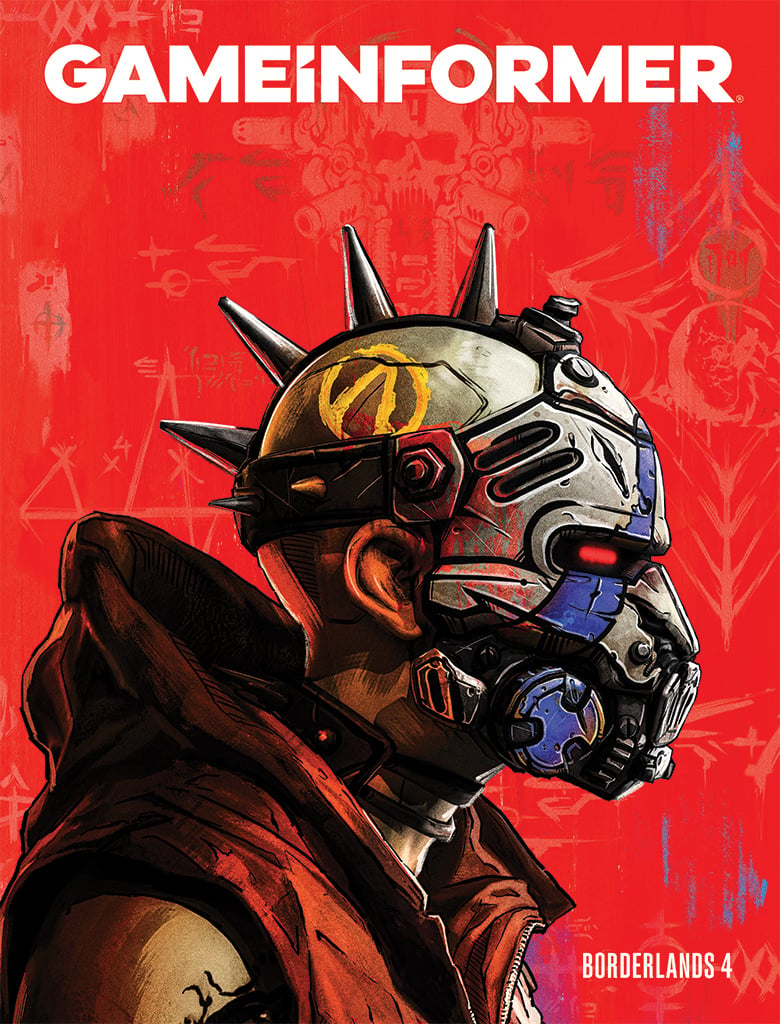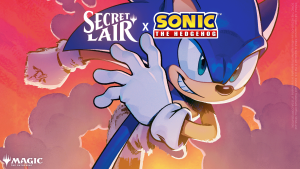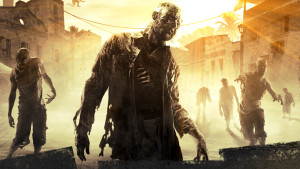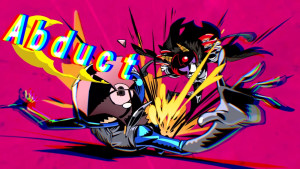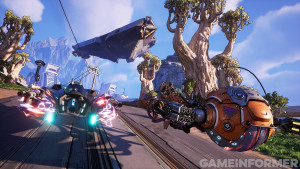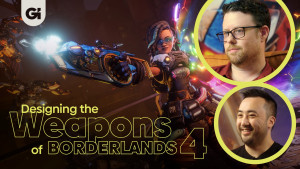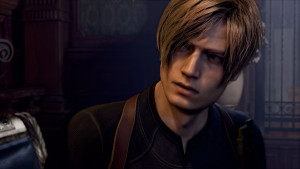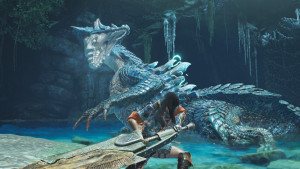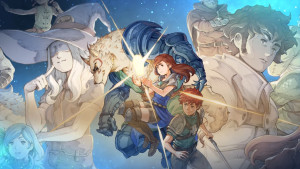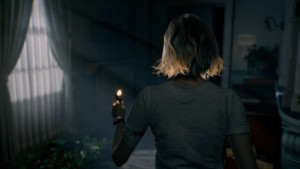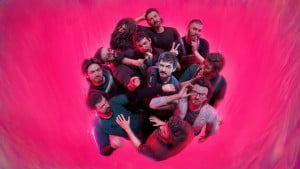Last chance to get your Borderlands 4 issue when ordered by July 1st. Subscribe Now!
Afterwords – Assassin's Creed IV: Black Flag
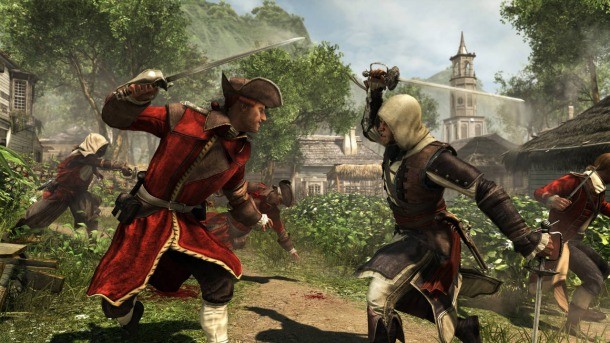
Even with a hood-wearing hero and hidden blades, Black Flag is a deviation from the series' tradition in many ways. It delivers a swashbuckling adventure more focused on gold and glory than previous installments, allowing players to plunder and pillage around the West Indies (read our review here). The pirate theme is a new direction for Assassin's Creed, and we talked to Black Flag's creative director Jean Guesdon about how the team approached the challenge and the changes made along the way.
Edward is a more self-interested character than other heroes in the series. How does his reception by fans compare to previous protagonists?
We’re really pleased by how fans received Edward as the first “non-assassin” main character. We think they got the point that in order to deliver a true pirate experience he couldn’t be an Assassin from the start, and that provides us with a very nice human story – one of a man progressively discovering himself more noble than even he would have thought at first.
Response to the Homestead in AC III seemed positive. What was behind the decision to make the Hideout in Black Flag less complex?
In Black Flag we, very early, made the decision that the Jackdaw would be the main asset to upgrade. This made sense from a captain's point of view, but we know that a lot of people love to develop an estate. This is why the Hideout is also part of Black Flag. The thing is, there are so many different things to take care of (Jackdaw, Edward, Fleet, Hideout…) that we thought this level of upgrade for the Hideout was enough when looked in the perspective of the overall experience.
Players have tons of satisfying activities to undertake in Black Flag. How do you approach creating the side content without overwhelming players with too many options?
We think that as long as the side activities make sense in the setting, they will be accepted by players. We didn’t “throw” activities in just for the sake of “adding content” in the game. It’s all a matter of, “Are these activities fun to do? Do they make sense for the player/character?” In the end, the players are the ones who decide if they care enough to invest in these activities. Our job is to provide them with things that they might enjoy. When you like things, there is never the “too many” feeling.
The sea shanties are some of the best collectibles in the whole series. How did their inclusion come about?
Our super talented audio director Aldo Sampaio and lead scriptwriter Darby McDevitt researched these shanties first for the audio atmosphere, and they ended up being so excited about them that they came to the design team asking to find a way to make them even more important in the game. We quickly realized that the “flying pages” introduced in AC3 would be the perfect “mechanic” to make them interesting collectibles. To me, this is the perfect example of a nice idea that came out of our historical research work, harmoniously tying the Assassin gameplay pillar (free-run to catch the songs) with the pirate flavor of the game (crew singing shanties when at sea). The team instantly fell in love with them, and we knew it would be a success.
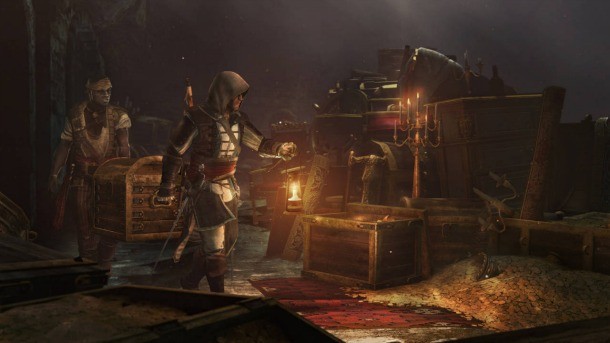
The prevalence of stealth/eavesdropping missions appears to be a common complaint about Black Flag. Was this ever a concern during playtesting?
We always said we wanted to get stealth back in Black Flag, and this is the reason why we had these stealth/eavesdropping missions. These missions have always been key parts of the AC franchise. Playtests always gave us valuable information to make them as fun and challenging as possible. To be honest, we know that some players are more action-oriented, but we felt these missions were also important for the rhythm and pacing of the game. It makes the experience really varied from ground to naval, from stealth to action.
Edward isn’t able to call on assassin allies in battle, which is a change for the series. Was that mechanic too easy to abuse?
Our main focus was always to create things that made sense based on the setting and the main character. Having decided that Edward was a pirate first, it became difficult to justify that Assassins would help him everywhere he would go. We thought it was more interesting and relevant to get the crew helping him out during naval boarding and fort attacks. Once again, the use of a feature has to be decided based on the relevancy in the game. We don’t have to use something because it has been used before.
Including naval battles in multiplayer seems like a natural fit. What about the concept wasn’t working as you tried it out?
We've never hidden that this was one of the very first thing we tried. We, like anybody else, felt that it would have been a great addition to the game. That being said, after a convincing first prototype, we looked at the situation with honesty and decided that we were not 100% sure to be able to do it in the timeframe we had. This is why we focused in delivering a very solid solo experience while improving the multiplayer we know by exploring user-generated content with the Game Lab. We think that this is a great addition to the multiplayer mode.
The Instruments of the First Will are introduced in Black Flag. Without divulging everything, is it safe to assume that this is a signal of the upcoming direction of the series’ ongoing modern-day plotline?
We have opened up a few narrative threads and themes in the present day that we would like to play with, but like we already said the “new” present day is our real world and this has impact at many different levels.
For example, as you can already see on ACInitiates.com we now have several entry points to the modern-day. In short, we have shifted to the present day being more of a "persistent context" for future games.
